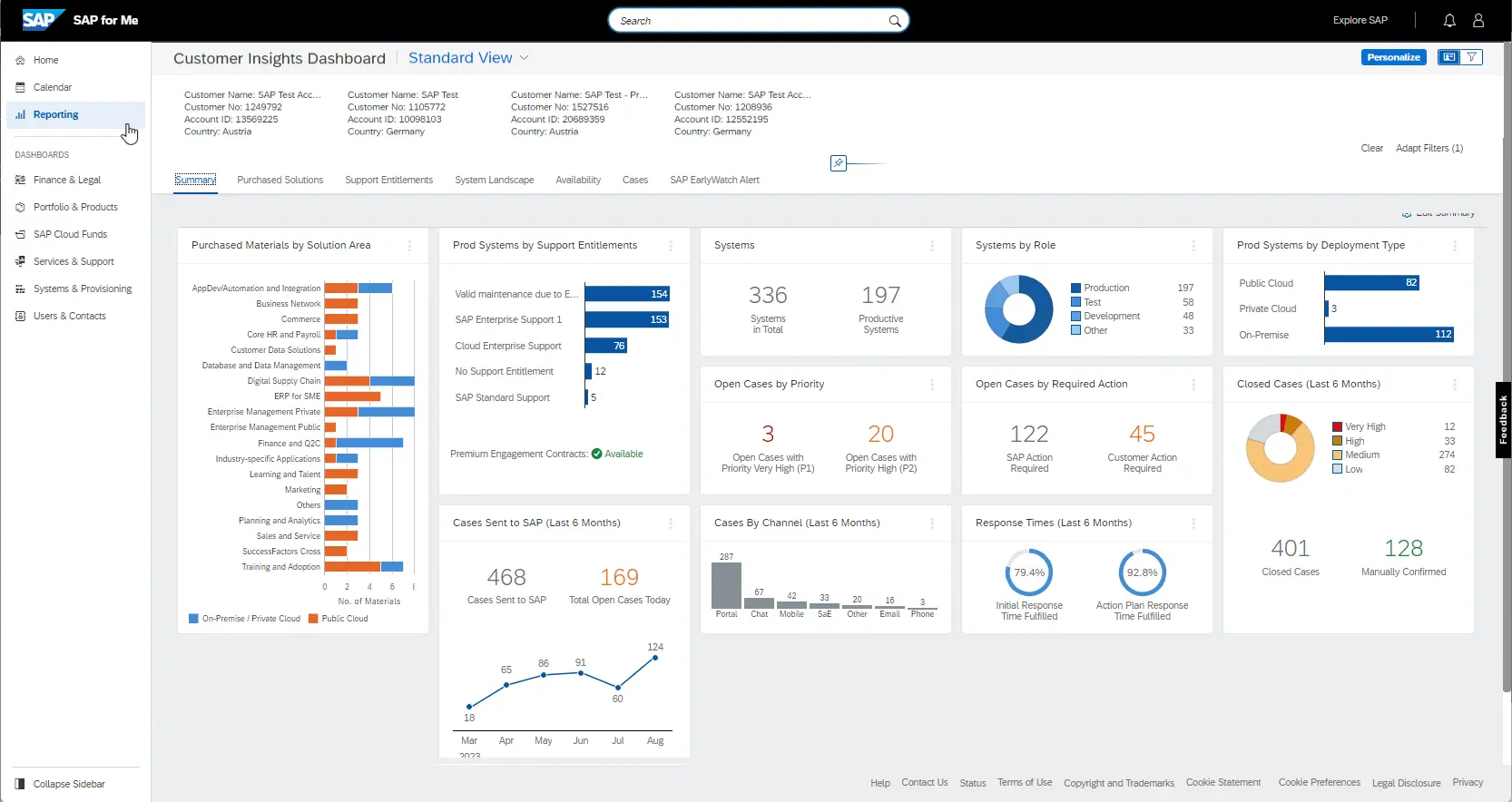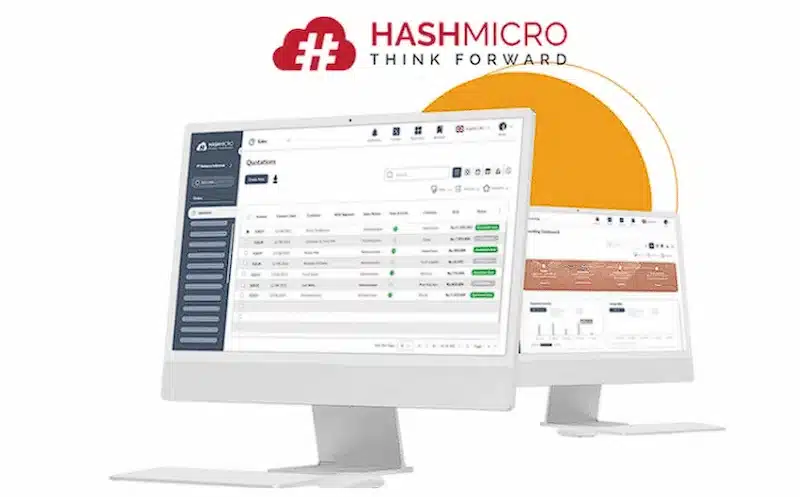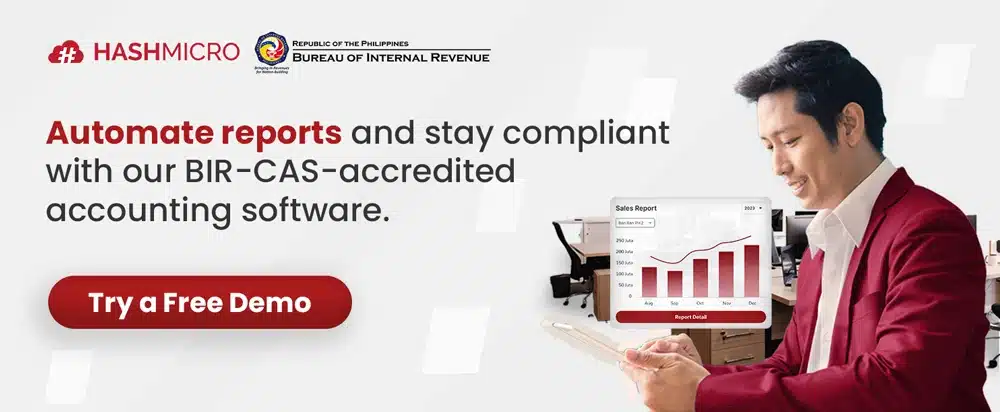In today’s fast-paced business environment, effective and precise financial management is essential for companies to succeed. This is where SAP Accounting comes into play. Developed by SAP SE, a global software company, Accounting System by SAP offers a centralized platform for managing financial data, helping businesses automate and streamline their financial processes.
Choosing the right accounting system is a critical decision for companies, and it’s important to evaluate which solution best fits their needs. Like any accounting software, SAP Accounting has its own strengths and limitations.
This article provides an in-depth SAP review, discussing its key modules and components and SAP accounting alternatives.
Table of Contents
Key Takeaways
|
What is SAP Accounting System?
SAP is widely regarded as one of the top providers of Enterprise Resource Planning (ERP) solutions. The acronym SAP stands for System, Application, and Processing. SAP Accounting refers to the Financial Accounting module within the ERP platform. It is intended to assist an organization’s Financial Accounting operations by offering features for handling financial transactions.
The SAP accounting system includes a range of accounting modules that manage tasks such as maintaining ledgers, preparing balance sheets, and generating profit and loss statements.
Need to know!
More businesses use AI to automate accounting and boost accuracy. Hashy AI streamlines tasks so teams can focus on analysis.

Get a Free Demo Now!
SAP Accounting System Modules
The SAP Accounting software philippines system offers a range of modules, including accounting, finance, controlling, and human resources management. The accounting module is crucial for generating key financial reports, such as balance sheets, general ledgers, and other related statements.
The SAP finance module acts as a central hub for storing and organizing financial data. Additionally, the SAP controlling module supports cost accounting and management accounting functions, helping businesses track costs, plan budgets, allocate expenses, and conduct profitability analyses.
The SAP human resources management module handles HR-related processes, such as personnel administration, organizational management, time tracking, payroll, talent management, and employee self-service.
Components of the SAP Accounting System
SAP Accounting is made up of several key components that work together to provide comprehensive financial management, ensuring efficient financial processes, adherence to accounting principles, regulatory compliance, and real-time insights for informed decision-making. These components include:
1. General ledger
The general ledger is the core of the SAP accounting system. It handles financial transactions, tracks account balances and generates essential financial statements like balance sheets and profit and loss reports. It also allows for the creation and management of accounts such as assets, liabilities, equity, revenue, and expenses.
2. Accounts payable and receivable
The accounts payable module manages vendor invoices and payments, tracks incoming invoices, manages payment terms, generates payment proposals, and maintains vendor master data. On the other hand, accounts receivable oversees customer invoices and payments, tracking customer balances, generating invoices, managing collections, and maintaining customer master data.
3. Bank Accounting
The bank accounting component connects bank transactions with the accounting system. It manages bank master data, reconciles bank statements, processes electronic transfers, and supports cash management functions. This ensures accurate recording of bank-related transactions, improves cash flow management, and streamlines payment processes.
4. Asset accounting
The asset accounting module helps businesses manage fixed assets and track their lifecycle, including acquisition, depreciation, retirement, and valuation. It generates asset-related reports and offers detailed tracking, allowing organizations to monitor the value, location, and usage of their assets effectively.
5. Funds management
This module focuses on budgeting, fund allocation, and monitoring organizational expenditures. It enables the creation of budgets for different cost centers and tracks actual spending against allocated funds.
The funds management component also offers comprehensive reporting and analysis tools, helping businesses evaluate their financial performance and make informed decisions regarding resource distribution.
6. Travel management
This component provides a centralized system for managing travel-related data, simplifying administrative tasks, and ensuring compliance with travel policies. It manages tasks like travel bookings, expense reimbursements, and policy enforcement. Employees can submit travel requests, track expenses, and manage approvals through this module.
7. Legal content management
The legal content management module assists businesses in maintaining compliance with legal and regulatory obligations, tracking important legal requirements, and streamlining legal document management. It offers features like version control, document collaboration, and workflow management to ensure efficient handling of legal documents.
Benefits of Leveraging SAP Accounting
As reported by Forbes, SAP in accounting software has various advantages that make it superior in improving operational efficiency. One of its main advantages is its ability to automate accounting processes, such as transaction recording, financial report generation, and inventory management.
In addition, SAP software offers a variety of general features that support everyday business needs. These features include general ledger management, fixed asset management, and real-time recording of financial transactions.
Another convenience offered by the SAP accounting software advantages is the feature to reject employee requests quickly and structuredly, especially when submitting expense claims or travel expenses. With a clear, automated approval system, companies can easily reject requests that are not in accordance with policy.
Limitations of SAP Accounting
Although SAP software for accounting is known as one of the comprehensive accounting systems, as reported by Forbes, one of its main limitation is the lack of transparency in costs. SAP often offers a variety of separate packages and modules, so the total cost to a company for a full implementation can be difficult to predict from the start.
One of the main flaws of the SAP Accounting System is its outdated appearance. This less modern user interface (UI) can be an obstacle for users, especially for those who are used to a more intuitive and user-friendly application design. The system offers many highly complex features, which can be confusing for new users or those unfamiliar with ERP software.
Unresponsive customer service is also one of SAP’s weaknesses. Some users report that getting technical assistance or support when problems occur takes a long time. This delay can be a serious hindrance for businesses that rely on SAP systems for daily operations.
HashMicro as an Alternative to the SAP Accounting System
Despite its many strengths, SAP software may not be the best fit for every organization. Ultimately, choosing the right software depends on an organization’s unique needs, budget, and scalability requirements. Alternatives to SAP may better suit certain companies, one of which is HashMicro AI Accounting Software.
HashMicro’s Accounting Software offers a complete set of modules to manage financial transactions, generate reports, and streamline accounting processes. It supports tasks such as recording and tracking general ledger entries, managing accounts payable and receivable, performing bank reconciliations, and handling asset management.
While SAP Accounting is renowned for its robust capabilities and wide integration options, HashMicro’s accounting tools presents a more cost-efficient and user-friendly alternative for small and medium-sized enterprises (SMEs) that may not need SAP’s complexity and scale. HashMicro’s software is designed to be intuitive, easy to deploy, and customizable to meet specific business needs.
Conclusion
The SAP Accounting software system is a robust and comprehensive solution for managing an organization’s financial operations. With its wide range of modules, SAP offers extensive functionality to handle essential accounting processes efficiently.
SAP Accounting allows businesses to maintain precise financial records, generate financial statements, monitor expenses, and ensure compliance with accounting standards and regulations. However, SAP System does have its drawbacks. It is complex to use and can be prohibitively expensive for small and medium-sized businesses. This is where HashMicro Accounting software comes in as an SAP alternative.
For a more affordable price, HashMicro offers an excellent package of comprehensive accounting modules to streamline your financial operations. Book a free demo today and take your business to the next level!
FAQ
-
Does SAP only provide accounting modules?
No, SAP also provides other modules for various business needs, such as ERP, HR, and others.
-
How does the SAP accounting system work?
The SAP accounting system works by recording all accounting records and collecting them on one platform for easy monitoring.
-
What is one of the best alternatives to the SAP accounting system?
HashMicro’s accounting system is one of the best alternatives, offering a lower price and a more intuitive interface. Other alternatives include Ecount ERP, Microsoft Dynamics, and Oracle NetSuite, which cater to different business needs and budgets.














































